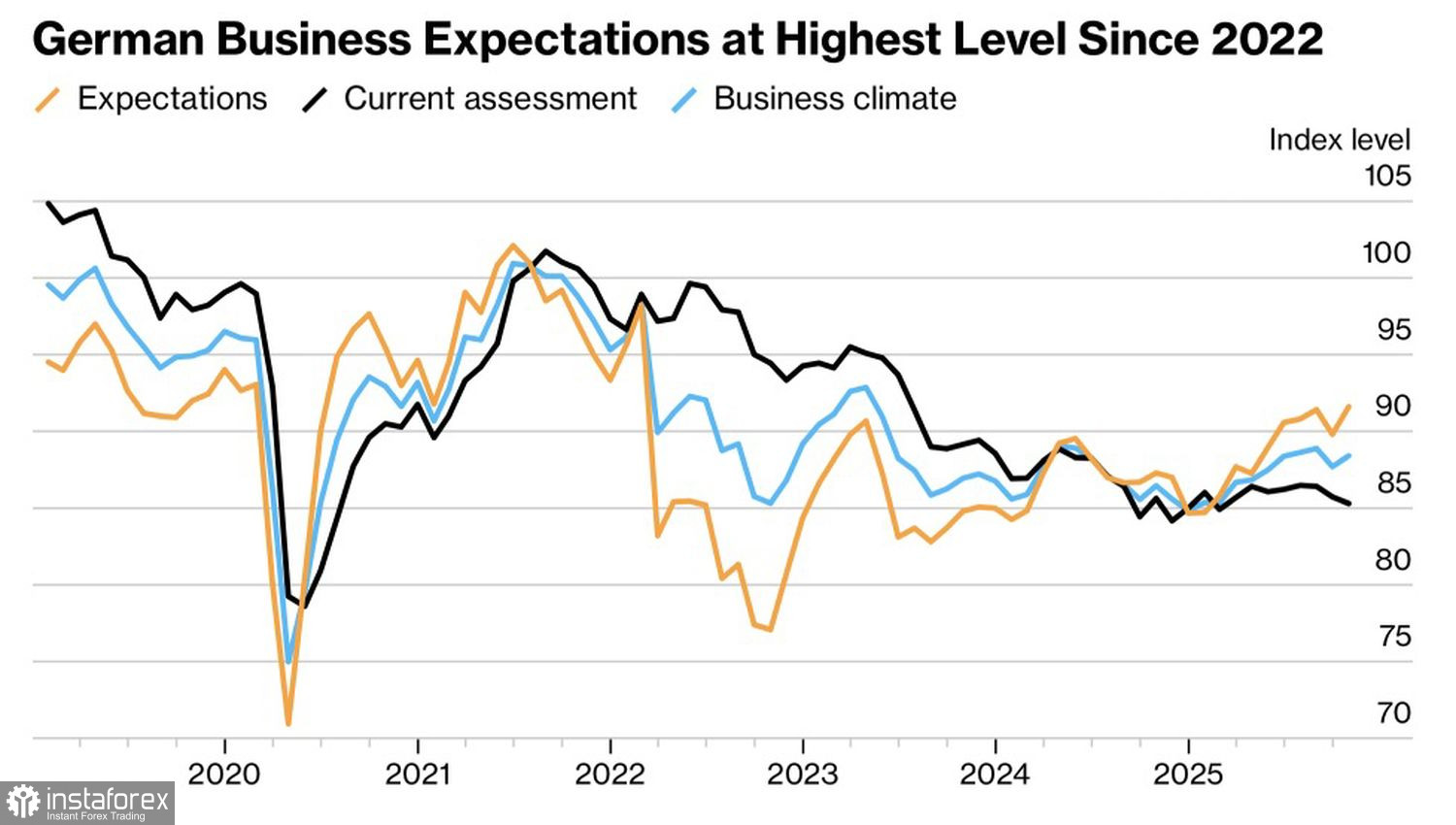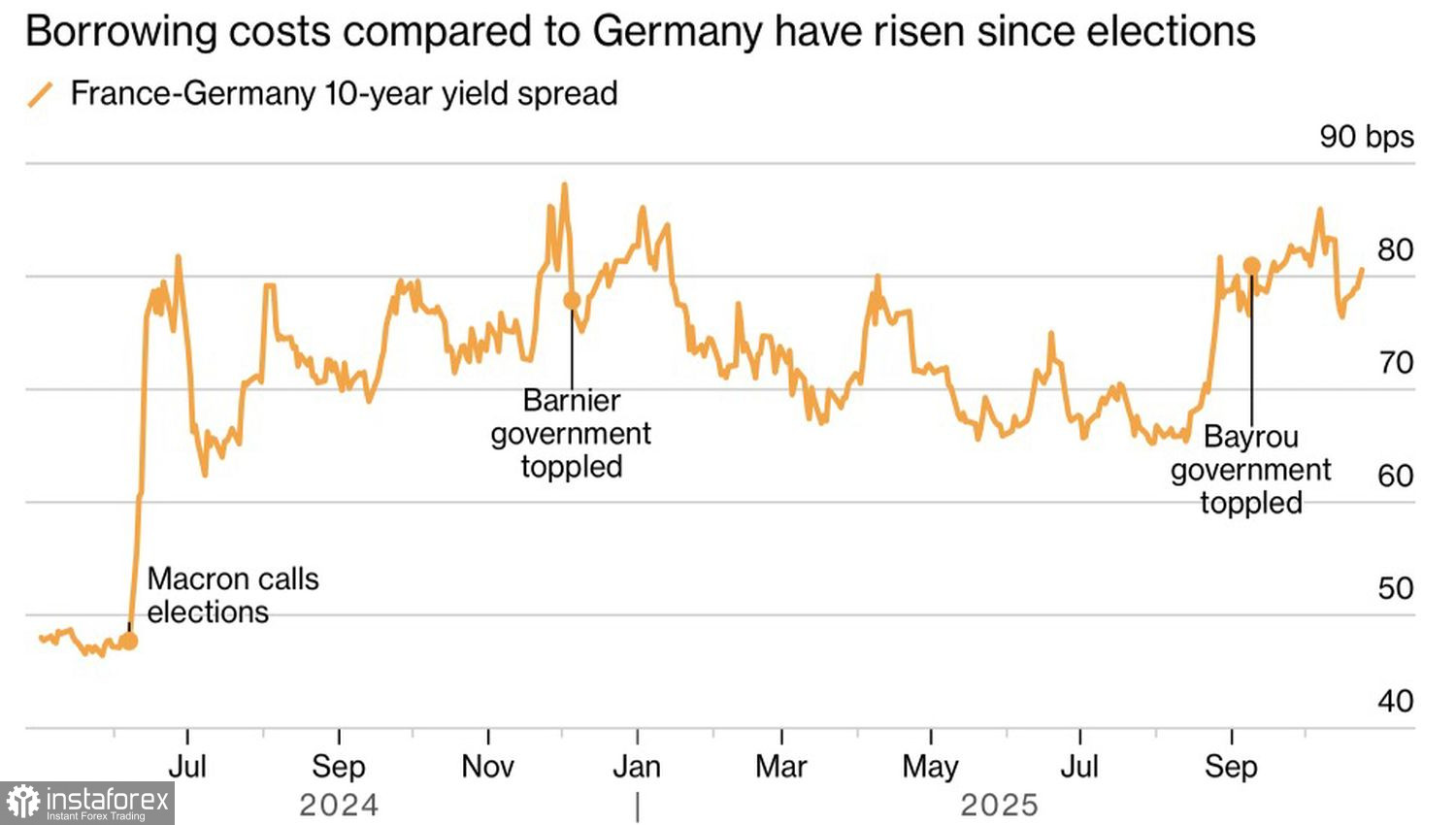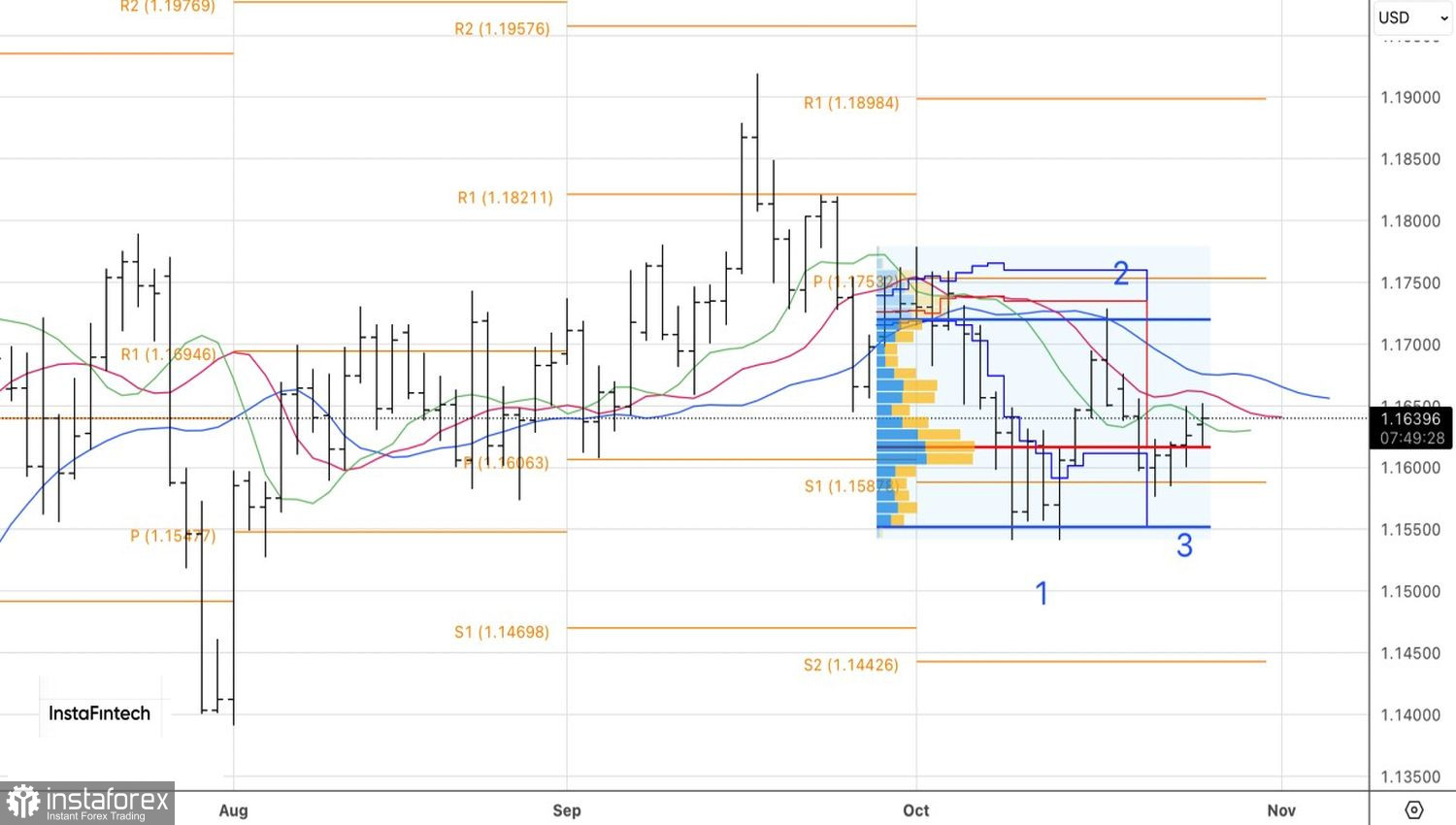Theory without practice is dead. Economics without politics won't last long either. Following the growth of European business activity to its highest levels since May 2024, German business confidence also showed improvement. The Ifo index rose to its highest level since 2022, surpassing Bloomberg experts' forecasts. However, the political drama in France has taken on new dimensions, curbing the enthusiasm of the EUR/USD bulls.
Dynamics of German Business Confidence

Positive news from the eurozone and German economies, along with the European Central Bank's intention to end the monetary expansion cycle amid falling Federal Reserve rates, should, in theory, have helped EUR/USD resume its upward trend. However, textbooks on fundamental analysis quickly become outdated. The situation in the markets and the global economy is constantly changing, and old truths may not apply in Forex.
It seems that the euro has been tied down again. And once again, France is to blame. Appetite comes with eating. Prime Minister Sebastien Lecornu's government, to survive a vote of no confidence, has heeded the socialists and postponed the implementation of the pension reform to a later date. Now the socialists are demanding other conditions of their program to be fulfilled, particularly tax increases on the wealthy. Otherwise, the Prime Minister may face another trial in parliament that he may not withstand.
The political drama unfolding in Paris has led to an increase in the yield differential between French and German bonds, suffocating any bullish attempts on EUR/USD.
Dynamics of the Yield Spread Between French and German Bonds

While a quick agreement on tariffs between the U.S. and China caused a plunge in the U.S. dollar in the spring, the USD Index is in no hurry to fall this autumn. Both sides announced successful transactions. However, fundamentally, nothing has changed. Beijing has not abandoned its export controls on rare earth minerals; it was only a postponement. Washington has resolved issues regarding fentanyl and soybean supplies, but what will China gain in return? Merely the cancellation of the yet-to-be-imposed 100% tariffs on imports?

A significant restraining factor for the EUR/USD bulls is the FOMC meeting. For the American central bank, the increase in inflation to 3% is less important than the rise in inflation expectations amid the rally in Brent and WTI. Only when inflation expectations stabilize will it allow for rate cuts due to a cooling labor market. Otherwise, the Fed risks putting the monetary expansion process on hold. A hint at such a scenario would be excellent news for the U.S. dollar.
Technically, on the daily chart of EUR/USD, buyers are attempting to play out a 1-2-3 reversal pattern, but progress is slow. Nevertheless, positions formed at 1.1615 in euros against the U.S. dollar can be increased in the event of another successful assault on resistance at 1.1650.





















